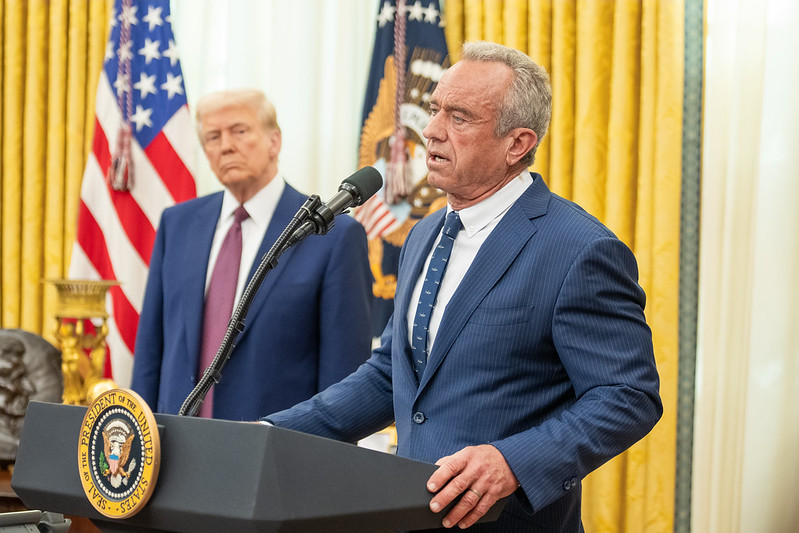
Kimberley Strassel writes of the privilege of interviewing Sally Pipes, president and CEO of the Pacific Research Institute. Everyone would benefit from reading more from Ms. Pipes, says Ms. Strassel, who describes Pipes as “one of the smartest ladies you will ever meet when talking about healthcare.”
Strassel and Pipes discuss many issues, including the peril of single-payer health systems, to the need for research and innovation, to problems with entitlement programs like Medicare and Medicaid.
Sally Pipes also has a new book out: “The World’s Medicine Chest. In the book, Ms. Pipes tells the story of how America became the leader in biopharmaceutical innovation. This is obviously a big piece of the healthcare puzzle: drugs, drug innovation, and drug pricing.
As far back in the early days of the 1700s, then into the 1800s and early 1900s, all the new drugs and vaccines were developed in Europe: Penicillin, the Bayer Aspirin, the smallpox vaccine, reveals Pipes. “Few drugs were developed in the US. Countries in Europe had price controls on pharmaceuticals. … to control costs (single payer of universal coverage systems), European countries had to put price controls on drugs.”
Inflation Reduction Act
To control costs, drugs were moved into single-payer or universal coverage systems. “They had to put price controls on drugs. The US at the time didn’t have price controls and was a relatively free market healthcare system. This allowed the US a relatively free market health-care system, resulting in 80% of new drugs that are developed come from the US.”
All the big drug names in Europe – Novartis, Roche, AstraZeneca, GlaxoSmithKline – eventually moved manufacturing facilities to the US because “we don’t have price controls or we didn’t until starting next year under IRA.” (Inflation Reduction Act)
Ms. Pipes, explains the costs of bringing a new drug to market and some of the headaches involved.
It costs about $2.6 billion from when you first register your research to getting that drug to the market through all the trials, and only about 12% of drugs make it. And it takes about 10 to 12 years to go through that whole process. So we are now the leader and we want to keep that because all of the new vaccines for cancer, for ovarian cancer that are being developed, colon cancer, all of these things.
Sally Pipes brings up the Canadian Healthcare System. Canada has a single-payer system. People there have an escape valve.
“They come to the United States. Where will the pharmaceutical companies go if they’re pushed out of the market and who’s going to be hurt by that? And it’ll be we, the patients, because we won’t have access to new vaccines, treatments, drugs, et cetera.”
Europe Dominated the Drug Market
Kimberley Strassel lived in Europe in the late 1990s. As she remembers, the US had few drugs. Someone close to Ms. Strassel has cancer, and KS talks of cancer treatment’s remarkable advances, like in immunotherapy. She also wonders where the Trump administration is about price controls, the ones ushered under the Biden administration.
Trump might understand the consequences of price control, but as Ms. Pipes notes, it’s pretty complicated. Pipes would repeal the IRA (Inflation Reduction Act, specifically the price controls under that Act. The IRA was signed into law under President Joe Biden in August 2022. Trump needs to explain to the Senate and House why they must repeal this Act. Ms. Pipes is worried. The first 10 drugs first mentioned by Kim under Medicare Part D came into effect on 1 January. 2020. The second 15 under Part D on 1 January 2027.
We have the time now, explains Sally Pipes, before they come in to get rid of them. As Milton Friedman, my mentor, used to say, “Sally, what government program has ever been repealed? Very few.”
Ms. Pipes hopes the Trump healthcare team and people in the cabinet will push to make sure that they talk about repealing the IRA, the Inflation Reduction Act, and the price controls under that Act. Although Trump Ms. Popes hopes Trump will talk to the Senate and the House so that they will repeal this, she hasn’t heard any whisperings of this yet, which worries Ms. Pipes.
Ms. Pipes wants readers to understand that “when a new drug goes to the patent office, when it finally comes to market, and it is under patent protection for 20 years, and then it comes off, and then generic companies can duplicate it completely. About 90% of the drugs consumed in this country today, Kim, are of the generic variety. They’re very inexpensive.”
Another concern is the confirmation of RFJK, Jr., an anti-vaxxer. The measles outbreak is a concern in this country. Taking Vitamin A is not going to work, warns Ms. Pipes. We need vaccines, she continues, and not the government telling citizens what vaccines and what pills to take. That’s the role of the pharmaceutical industry. We don’t want to lose sight over what has been eradicated: illnesses like polio, smallpox, eradicated, measles, mumps, rubella.
Kim Strassel emphasizes what an important issue this is and the gravity of getting it right. Rather than defending the right message, it seems to be blowing up into a diversion,
leading KS to ask about Dodge and Congress and the many issues that need to be addressed in the healthcare system. She asks Ms. Pipes for insights into reforming Medicaid and how to make it better.
Even in the transcript, you can hear Ms. Pipe’s voice brightening when discussing Dodge. “Isn’t Dodge a great term? Who would have thought that President Trump would have set up a DOGE committee right off the bat? So I think it’s very exciting.”
Medicaid program is for low-income Americans, pregnant women, and people with disabilities. Medicare is the program for our seniors. Medicaid under Obamacare? Fortunately, the Supreme Court said that states cannot be mandated to expand their Medicaid programs, although most states have. Under the expansion, the Feds used to pay between 50% and 75% of the cost of Medicaid. States picked up the rest. However, under Obamacare, the feds are now paying 90%.
Pile on Covid and expansion and we get many more people signing up for Medicaid. They don’t have to prove eligibility. Ms. Pipes says it has been proved that there are 18 million people illegally enrolled on Medicaid at a cost of $31.1 billion. Doctors don’t want to take Medicaid patients because the reimbursements are so low. Ms. Pipes assures readers that she isn’t advocating getting rid of the Medicaid program for those who need it. She wants to eliminate fraud and abuse. There are 80 million people on Medicaid, and there aren’t enough doctors to see them. “… let the very people that really need it get the Medicaid coverage.”
KS then moves on to fraud and abuse in Medicare. As Ms. Pipes notes, only in government does the real answer not matter: “There is a 10% threshold for allowing improper payments, and illegals are 8%; therefore, it’s working well, notes Ms. Pipes.
“… there have been about $1.7 billion in improper payments for people on Medicare. That’s just in the straight Medicare program, not the Medicare Advantage program, which is the Medicare program, which a lot of seniors now have. Because like with Medicaid, a lot of doctors will not take Medicare patients because also of low reimbursement rates.”
The real problem is that neither program is working well for the people that the programs are set out to help. If changes aren’t made now, young people will have to pay a lot more in tax in order to cover poor people and the elderly, which the Baby Boom generation is. Sally says she is part of that, moving through the snake.
If we are going to do these programs, shouldn’t they be done well? asks KS. Instead, the country is spending “extraordinary sums of money to do them very badly.”
… in Donald Trump’s first term, there was an attempt to get rid of Obamacare. It did not work out. We are now eight years on from even that, so eight years longer of this being the law of the land. Do you see any chance of that program going away?
This year marks the 11th year since Obamacare was signed into law. Ms. Pipes is not optimistic about changes to Medicaid/Medicare. What she is optimistic about is Dr. Jay Bhattacharya becoming chairman of the NIH.
KS hopes there will be enough pressure on Republicans to do something about the medical mess. Ms. Strassel, due to a medical issue close to home, talked this past weekend with people about the extraordinary sums they pay under this exchange and the very poor care they get under it.
“But in the absence of doing something about that immediately, what are some things you’d like to see this Republican Congress do to try to improve our healthcare system, either in a big way or even on the margins?”
Ms. Pipes would start by eliminating the middleman from the center of the drug issue. Another program in need of reform is the 340B, a drug discount program for hospitals in rural areas to help those low-income people who have a hard time getting a doctor getting good healthcare.
(Instead,) big hospital conglomerates, which more and more hospitals and docs are joining hospital conglomerates, they’re part of the program now and they’re taking the good money and not allowing the money to go to those people in these rural hospitals.
Ms. Pipes isn’t sure it will happen in her lifetime, but she has trouble with the whole trade issue.
“… all of these countries with price controls on drugs, they’re free riding off our research and development. And it really is unfair, and Trump has talked about it, but will anything happen? But we really need to get those people paying their fair share rather than having all the cost come to us. Another thing would be getting rid of certificate of need laws, because in many states they’re con laws, and they’re a big con because they allow the hospitals or the medical centers that are in business now …”
Ms. Pipes explains why we need market capitalism. Find a way, a need, so that individuals can set up their own hospital. If no one comes, shut it down. That’s the way the markets work. Get back to allowing people to make decisions about their own healthcare. Ms. Pipes tells KS that it will reduce the cost and allow more affordable, accessible quality care for all of us, which is what we want.
Price transparency is the topic that closes the Strassel/Pipes conversation. Crackdown with fines on hospitals that don’t post their prices. Ms. Strassel agrees. If people have the information, they can make good choices.
For more from Salley Pipes, go to Amazon for her latest book, “The World’s Medicine Chest.” Also on the website are other books written by Sally C. Pipes.
If you’re willing to fight for Main Street America, click here to sign up for the Richardcyoung.com free weekly email.




